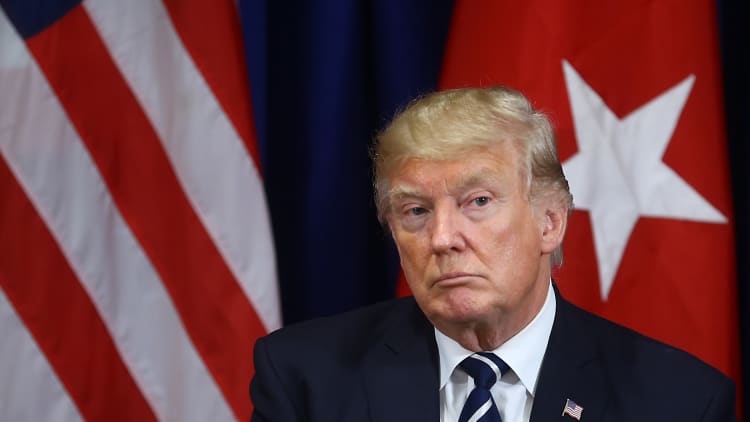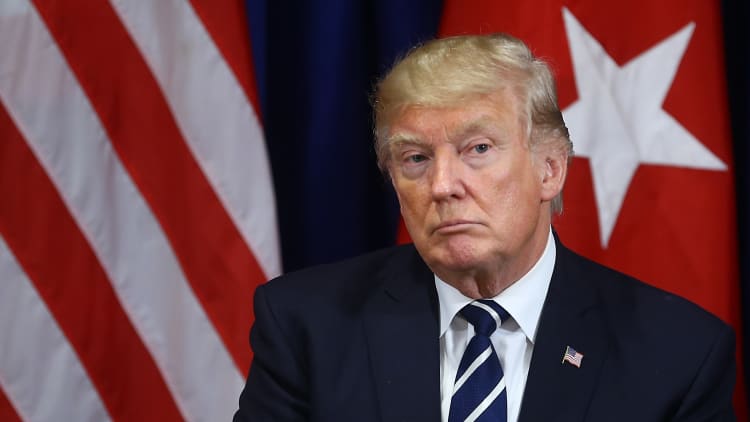
President Donald Trump's move Friday to double metals tariffs on Turkey is only his latest jab against the NATO ally that stems from disagreements over defense policy and the detention of American pastor Andrew Brunson.
Trump came into office seeking better relations with Turkey. But as Trump announced his plans to hike tariffs on Turkish steel and aluminum to 50 percent and 20 percent, respectively, he acknowledged that "our relations with Turkey are not good at this time!"
In a tweet Friday, the president said he would levy tariffs as "their currency, the Turkish Lira, slides rapidly downward against our very strong Dollar!" The already-reeling currency plunged even more Friday, dropping 20 percent after Trump's tweet.
The White House later tried to clarify Trump's tweet, saying in a statement that he "authorized the preparation of documents to raise tariffs" on metals imports from Turkey.

Late Thursday, and before Trump's tweet, Turkish President Recep Tayyip Erdogan said he would stand up to pressure from the United States.
"There are various campaigns being carried out. Don't heed them," Erdogan said Thursday. "Don't forget, if they have their dollars, we have our people, our God. We are working hard. Look at what we were 16 years ago and look at us now," Erdogan told supporters.
The feud between the two countries surfaced several times this year.
Bipartisan members of Congress and the Trump administration have objected to Turkey's plan to acquire a Russian missile defense system. A deal for Turkey to receive Lockheed Martin F-35 fighter jets went through in June, despite congressional opposition to the transaction related to the Russian-made missile system.
Lawmakers are worried that the missile defense system could expose weaknesses in the U.S.-made aircraft. They fear that Turkey could share those vulnerabilities with Russia, among other concerns.
When the Senate voted overwhelmingly this year to block the jet sales to Turkey, members also raised concerns about Brunson's detention. Turkey has held the evangelical pastor since 2016 and alleged that he was involved in a failed coup attempt that year. He has denied the charges.
At the beginning of the month, the Treasury Department sanctioned Turkey's ministers of Justice and Interior because of Brunson's detainment. A few days earlier, Trump tweeted that "this innocent man of faith should be released immediately!"
The tensions between the countries extend into trade, as well. The Trump administration in March imposed tariffs of 25 percent and 10 percent on steel and aluminum imports, respectively, from most trading partners, including Turkey.
In June, Turkey responded by imposing duties on $1.8 billion in U.S. goods including coal and paper.
Total trade of goods and services between the U.S. and Turkey amounted to $22.4 billion in 2016, the most recent data available.


